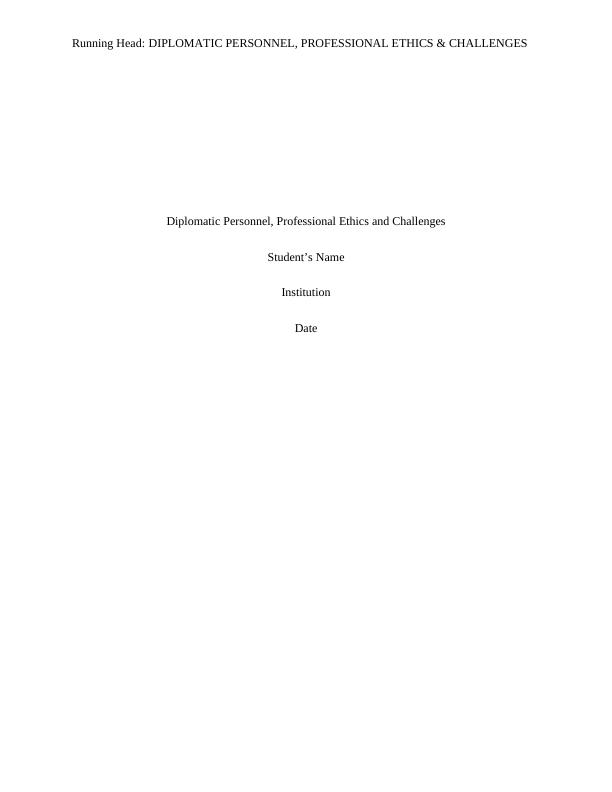Diplomatic Personnel, Professional Ethics and Challenges
4 Pages756 Words219 Views
Added on 2022-11-18
About This Document
This article discusses the challenges faced by diplomatic personnel and the importance of professional ethics in the field. It also highlights the selection process and training of foreign service officers.
Diplomatic Personnel, Professional Ethics and Challenges
Added on 2022-11-18
ShareRelated Documents
End of preview
Want to access all the pages? Upload your documents or become a member.


